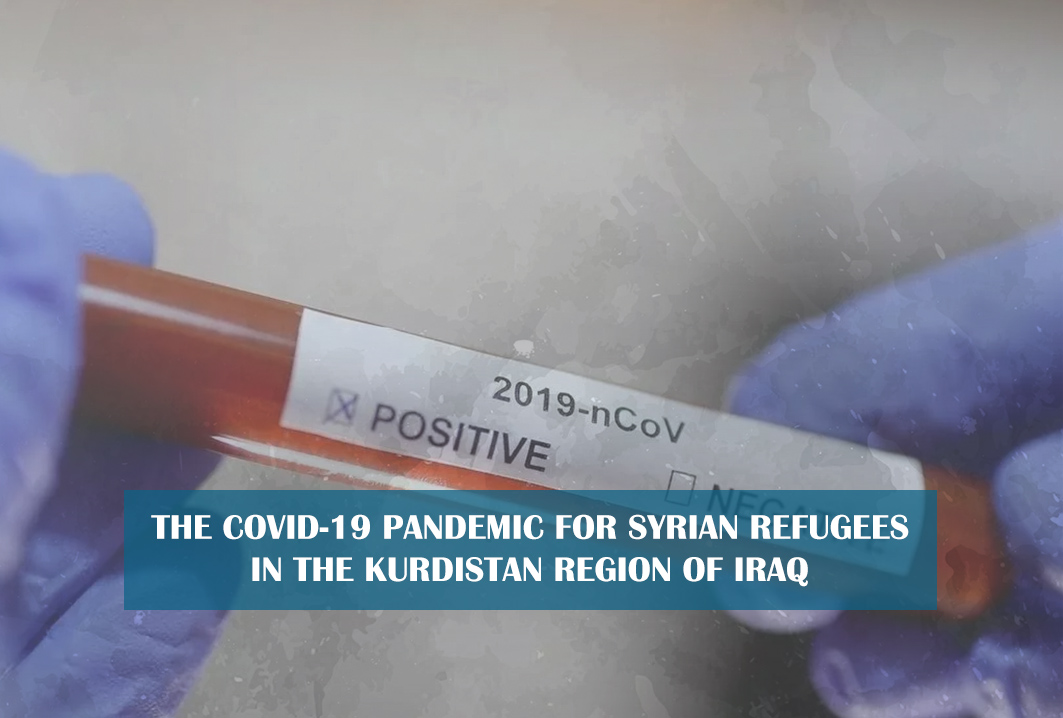10 April 2020
The Kurdistan Region of Iraq recorded 302 confirmed cases, 105 of whom have recovered while 3 people died. As for the Syrian refugees present in the region, no confirmed cases of Coronavirus were recorded or officially announced until the date of preparing the report. The quarantine measures imposed 27 days ago are still continuing, varying between total closure and grace periods.
The Syrian civil platform observed a major lack of commitment by the people of the region in the beginning of the government warnings. One of the neighborhoods in Arbil witnessed a small outbreak of the virus and about 85 people in different regions got infected. Hence, the government was forced to quarantine 11 districts in Arbil.
The quarantine measures imposed by the regional government affected all the residents including the 282,000 Syrian refugees, 172,000 of whom live in cities outside the camps equipped by the regional government. The quarantine had the following consequences:
- All refugee workers inside and outside the camps had to stop working. According to preliminary estimates, two-thirds of the refugees outside camps are home renters and they were the first to be affected by the quarantine and halted economic activity.
“Mrs. (S.M.) worked in a food factory prior to the quarantine and cessation of economic activities and was the breadwinner for her family. She has to pay 100,000 Iraqi dinars in rent for her house. When she was not able to pay her landlord after she stopped working, he said he could not stop taking the rent because he is also a sole breadwinner for his family and the rent is his source of income.
- Limited access to medical services for all refugees, even those suffering from preexisting conditions and diseases.
“Mrs. Um Tewfik, a 70 year old refugee in Iraqi Kurdistan for over six years is ill with diabetes and pressure disease, lives with her handicapped young son in the Dohuk governorate. The two had been financially dependent on their spending on the older son (who has five children of his own), but after the quarantine and the cessation of work, they no longer have any financial resources, and desperately need assistance in addition to medical care.
- There was a direct impact on refugee access to food aid, especially for those workers that can no longer earn a living. With regards to aid in general and the camps in particular, food baskets were distributed by a small number of organizations and some individual initiatives. However, this aid was not sufficient because it was not comprehensive and continuous.
Mrs. (F-Q) has four children and her youngest is 4 months old. Their father has been suffering from mental illness and has been admitted in the hospital’s psychiatric department for more than two months. Mrs. (F-Q)’s family has no help and her children have been going hungry. She said that she has started feeding the infants tea instead of milk due to extreme poverty.
“Another refugee (S-M) resident in Erbil is a father of five children, who have special needs for three years. He had relied on aid to support his family and pay the rent for his house. But after the emergence of the Corona pandemic and the imposition of a lockdown, a majority of agencies have stopped working and he no longer has access to any support.
Although a lockdown is the most effective mechanism to counter the spread of the Coronavirus, the continued quarantine imposed by governments is further deteriorating living conditions for Syrian refugees in the Kurdistan Region of Iraq and elsewhere. Extensive measures are hence required to address the pandemic, not just on the healthcare level, but also for relief and financial aid. Accordingly, the Syrian Civil Platform recommends that:
- Exempted the Syrian refugees from paying electricity and water bills by the Iraqi Kurdistan government.
- The international community and the United Nations intensify food aid for all Syrians in the region or give out food cash allowances in addition to aid related to house rents, until the end of the pandemic.
- The European Union should restructure its aid to Syrian refugees and increase its support for the Syrian refugees who reside in the Kurdistan Region, especially living outside the camps.
Finally, the Syrian civil platform highly commends the social solidarity between Syrian refugees in the Kurdistan region of Iraq and hopes that it continues until the end of the pandemic.

